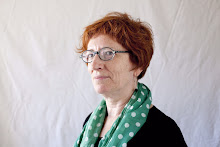Yesterday I was reading an article about oxytocin – the “love hormone” or “cuddle hormone”. The piece mentioned that certain genetic variants of the oxytocin receptor gene, OXTR, are thought to be associated with a higher level of sociability, empathy towards others, etc., and so I decided to go and see which variant I had been dealt in the genetic lottery.
(click on the title to continue reading)
Well, apparently, I’m not that sociable, or trusting, or sensitive to other people’s emotions, because my genetic makeup at SNP rs53576 is “AG” – and that to be really good I would need to have a “GG” at that location. It’s true that I often find it hard to read other people’s emotions on their faces – but I don’t think I’m all that inconsiderate or introverted as they seem to say my variant should make me. I’m sure that, as happens with everyone of our human behaviors, there’s a genetic component in social attitudes, and a cultural and autobiographical component as well.
It seems that the A also makes people more (negatively) sensitive to stress. That, I must say, seems more familiar...
For the record, it was in 2009 that Sarina Rodrigues and colleagues at the University of California and Oregon Sate University announced in the journal Proceedings of the National Academy of Sciences that they had identified an “empathy gene”. The gene, OXTR, is the molecular receptor that allows for oxytocin’s various effects on human social behaviour. They observed that, at SNP rs53576, people could have an A or a G (two of the four DNA “letters”), and that those who had inherited a G from both their mother and father tended to be more pro-social.
Friday, March 16, 2012
Tuesday, February 7, 2012
Denisovan DNA is online
The genome of the third official (but extinct) species of modern humans has been published online in a public database and can be freely accessed by everyone at http://aws.amazon.com/datasets/2357. Now I’m sure I’ll be able to know whether some of my most remote ancestors also belonged to that species. When the results are in, I’ll let you know.
Thursday, December 15, 2011
The Neanderthal in me

I inherited 2.5% of my DNA from our ancient Neanderthal cousins. It’s an average value, I’m told in my results. Some people have more, others, have less Neanderthal in them. I also hope to know soon what percentage of my genome is Denisovan (the third species of modern humans, whose fossils were discovered in a cave in Siberia, and officially recognized a year ago). Like the Neanderthals, they’ve been extinct for some 30 thousand years, they coexisted with Homo sapiens (ourselves) and Neanderthals, and like the Neanderthals, they interbred with us.
Monday, May 16, 2011
Wednesday, May 11, 2011
My Asian ancestry is gone
 In one of my earliest posts, I mentioned 23andme’s Ancestry Painting, which allows us to see the origin of our chromosomes in terms of large geographical regions. At the time, I had some small fragments (less than 1 percent) of Asian origin. But recently 23andme announce it had made improvements to this functionality – and when I went there a few moments ago to see if anything had changed for me, I discovered that my Asian genes were no longer there...
In one of my earliest posts, I mentioned 23andme’s Ancestry Painting, which allows us to see the origin of our chromosomes in terms of large geographical regions. At the time, I had some small fragments (less than 1 percent) of Asian origin. But recently 23andme announce it had made improvements to this functionality – and when I went there a few moments ago to see if anything had changed for me, I discovered that my Asian genes were no longer there...
Friday, May 6, 2011
On air: my genes and me on French radio

Listen to the podcast of the debate that took place today on France Culture's "Science Publique" program (in French).
Thursday, May 5, 2011
Me and my genes on French radio!
Tomorrow I'm participating in a debate, on the French radio station France Culture, on the topic “Do genetic tests predict our future?”. The program’s name is Science Publique and it starts at 2 p.m. (Paris local time).
Subscribe to:
Posts (Atom)





